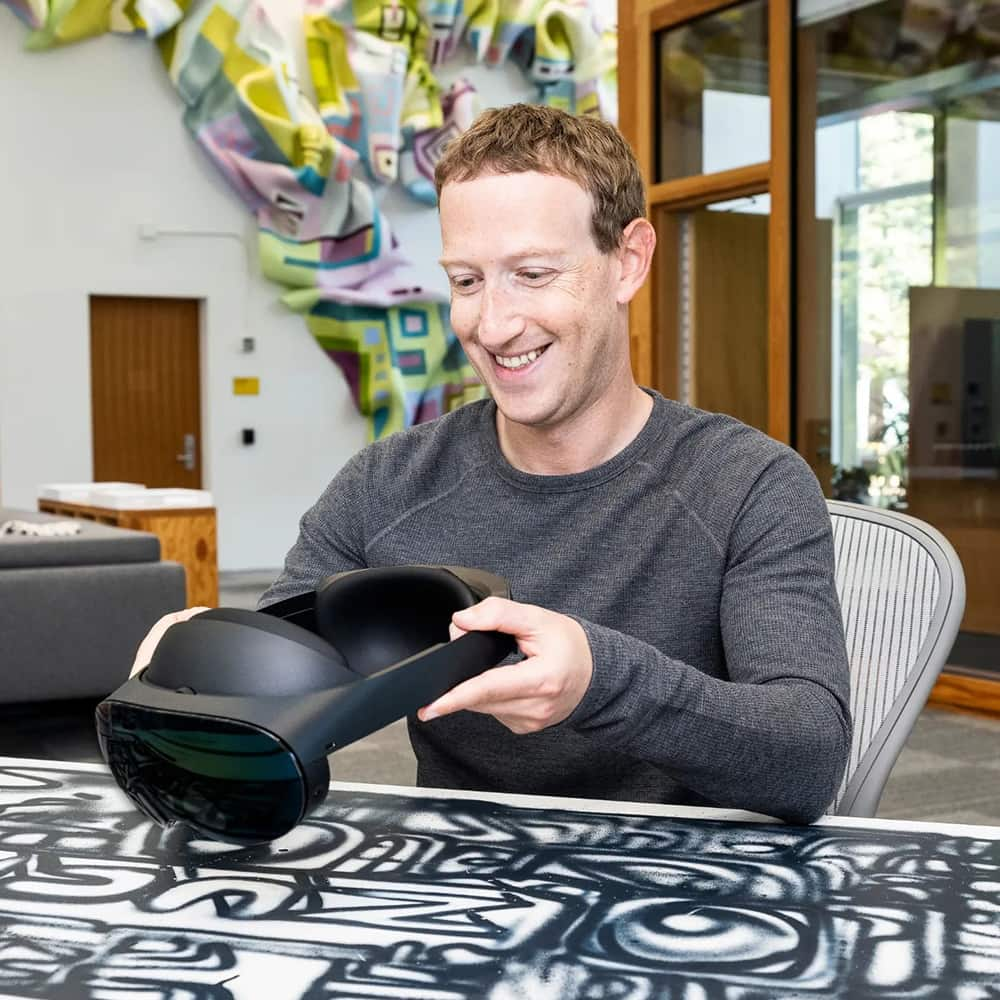Facebook was only born in 2004. In less than two decades, it has become among the top largest companies the internet has ever seen, and also one of the most influential, powerful, and profitable companies out there in the world.
Its founder and CEO, Mark Zuckerberg, started Facebook as a mere social media network. But gone are those days. Facebook is no longer a "social media network," and has grown big enough to encompass pretty much every single communication method the internet society has indulged themselves into.
That, thanks to its acquisition of WhatsApp and Instagram, and its lesser-known properties and services.
By being on top of the social media food chain, Zuckerberg tried to ramain competitive and relevant by evolved Facebook, by first renaming it to "Meta."
Read: When Facebook Becomes A 'Metaverse Company', It Will Stop Being A Social Media Company

What he did, was evolving human-computer interaction to become less distinctive, by "blending" the real world with the digital world.
This world is called the "metaverse."
Metaverse was the hype, and with Meta creating Horizon Worlds to show its metaverse ambition, many others followed suit.
Since Meta is one of the largest tech companies, pretty much everything revolves around it.
Microsoft leveraged its Mesh technology to create its own metaverse, Pokémon GO Niantic Labs shared the technology needed to create AR/VR apps, Samsung in developing its own chips for the metaverse, and Qualcomm in developing chips dedicated to headset devices among others.
With more and more into the competition, and with the ambitions of Zuckerberg, Meta spent billions of dollars only in research and development.
While the advances of the technology is certain, Zuckerberg didn't anticipate a rival that isn't related to social media at all.
OpenAI, an American artificial intelligence (AI) research laboratory, made headlines for many times, like when it created AIs like DALL·E, DALL·E 2, GPT-2, GPT-3 and more.
But nothing can compare to its ChatGPT.
And the hype that follows ChatGPT, which include, and not limited to, the development and the overly debated Bing chatbot, Google Bard and its botched debut, Snapchat's My AI, and more, has made Meta lose its focus.

"About 80% of our investments - a little more -- go towards the core business, what we call our family of apps, so that's Facebook, Instagram, WhatsApp, Messenger, and the ads business associated with that. Then a little less than 20% of our investment goes towards Reality Labs," once said Zuckerberg in an interview, back in November 2022.
Coincidence or not, that month was the month OpenAI unveiled ChatGPT.
As a company, Meta is for-profit, meaning that it has to generate income, and that should always be its goal.
Following mixed reviews and harsh comments involving its metaverse and its related hardware products, and seeing how OpenAI could quickly get traction and earned the tech world's attention, Meta is flinching.
It cannot deny that at this time, its metaverse ambition is a flop.
Because of this, Meta is dumping its metaverse dreams.
While not entirely, but the company has started relocating many of its resources from the development of the metaverse, towards the development of generative AI.
The company did this with no press release, and no big announcement.
This suggests that Zuckerberg acknowledges that he was wrong.
The metaverse was supposed to be the Next Big Thing for the social-media tycoon. It was supposed to be the future of technology, the successor of the social media-based internet.
Meta was devoted to the development of this project.
But along the way, Meta was leaking money because of this.
For example, between 2021 and 2022, Reality Labs, the division housing metaverse projects, recorded a cumulative loss of nearly $24 billion.
Zuckerberg seems to have snapped out of it and returned from the metaverse to the real world of reality.
Because of OpenAI, Zuckerberg paused, and simply withheld his ambitions. Because of ChatGPT and its hype, he jumped into the bandwagon, and into the more-current shiny thing.
"We're creating a new top-level product group at Meta focused on generative AI to turbocharge our work in this area," Zuckerberg said a post on Facebook. "We're starting by pulling together a lot of the teams working on generative AI across the company into one group focused on building delightful experiences around this technology [...] ."
"In the short term, we'll focus on building creative and expressive tools," he wrote. "Over the longer term, we'll focus on developing AI personas that can help people in a variety of ways."
This followed his earlier post, which said that Meta is launching a "state-of-the-art AI large language model called LLaMA," that is purposefully designed go help researchers.
"LLMs have shown a lot of promise in generating text, having conversations, summarizing written material, and more complicated tasks like solving math theorems or predicting protein structures," Zuckerberg said.
LLMs is the very thing behind technologies like ChatGPT and others, which churned huge amount of data that made them 'behave' the way they do.
While this suggests that Meta is shifting its focus, it doesn't meant that Meta is abandoning its metaverse dream altogether.
The legacy of the metaverse remains because Meta will continue to develop remnants of this virtual world, such as headsets, but it should be more for a target audience.
Zuckerberg understands the trends, and how something that is not within its scope can threaten its dominance, in terms of headline-catching ability. Realizing this, the CEO immediately pivoted, and this is the safest way for him as the leader of Meta.
By redirecting the attention of his critics to AI, experts, shareholders and users should consider the move a move that makes more sense.
After all, ChatGPT has become the world's fastest-growing consumer app with 100 million users after only two months being released.
With ChatGPT Plus, OpenAI has started monetizing the effort.
Meta has to earn money, and has to remain relevant. By pivoting, Zuckerberg is saving himself, and his company.
Following the announcement, Zuckerberg spares himself from even more humiliation.
Read: Meta Is 'Not An Innovative Company' And Its Metaverse Is Not Going To Be Successful
